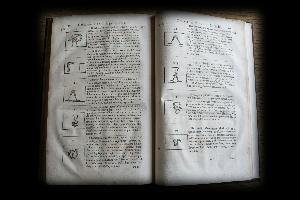The Reverend Athanasius Kircher Sj
The Reverend Athanasius Kircher Sj;Athanasius Kircher
Place: Geisa
Born: 1602
Death: 1680
Biography:
The Reverend Athanasius Kircher Sj, a German Jesuit scholar and polymath, was born on May 2, 1602, and passed away on November 27, 1680. He is renowned for his extensive contributions to various fields, including comparative religion, geology, and medicine. Kircher's vast range of interests has led him to be compared to fellow Jesuit Roger Joseph Boscovich and to Leonardo da Vinci, earning him the title 'Master of a Hundred Arts'.
Artistic and Intellectual Pursuits
Kircher published around 40 major works, showcasing his expertise in diverse areas. His studies on ancient Egyptian language and hieroglyphic writing, although not entirely accurate, correctly established the link between the ancient Egyptian and Coptic languages. This has led some commentators to regard him as the founder of Egyptology. Kircher's fascination with Sinology is also evident in his encyclopedia of China, where he revealed the early presence of Nestorian Christians. Kircher's work in geology included studies of volcanoes and fossils. He was one of the first researchers to observe microbes through a microscope, proposing that the plague was caused by an infectious microorganism and suggesting effective measures to prevent its spread. His interest in technology and mechanical inventions led to the creation of various automatons, including a magnetic clock and the first megaphone. Key aspects of Kircher's work include:
- Comparative religion: published works on the subject, showcasing his expertise
- Geology: studied volcanoes and fossils, making significant contributions to the field
- Medicine: proposed that the plague was caused by an infectious microorganism, suggesting effective measures to prevent its spread
Legacy and Recognition
Kircher's legacy is evident in his recognition as a 'Master of a Hundred Arts'. His work has been honored, and he is compared to Leonardo da Vinci for his vast range of interests. The Roman College, where Kircher taught for over 40 years, showcases his contributions to various fields. To learn more about The Reverend Athanasius Kircher Sj and his works, visit https://Wikioo.org/@/The-Revered-Athanasius-Kircher-Sj. Explore the world of art and discover the fascinating stories behind each piece at https://Wikioo.org. For more information on Leonardo da Vinci, visit https://Wikioo.org/@@/8XYFG2-Leonardo-Da-Vinci-Drawing-of-an-equestrian-monument.














